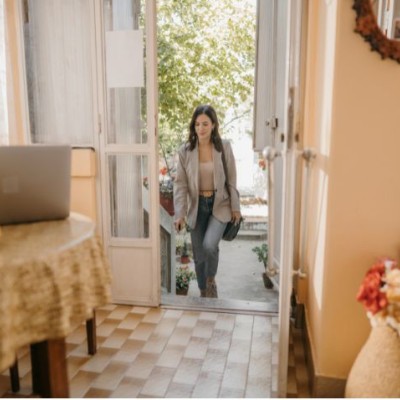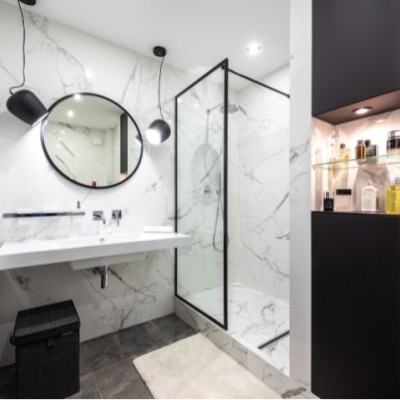How tenants can still save for a deposit when renting

In England (excluding London), the average age of a first-time buyer has been slowly rising over the years and has now reached just over 33. Prospective buyers can feel ‘trapped’ in the rental market, with average rents already at their highest as a proportion of earnings for more than a decade (28.3%, Zoopla) and the soaring cost-of-living making saving for a deposit particularly hard.
While there are various schemes to help first-time buyers get on the property ladder, you do need to have at least a 5% deposit. According to Rightmove, the average price of a first-time buyer property (two bedrooms or fewer) is £225,000, which equates to a deposit of £11,250.
If you’re struggling to save for a deposit, here are five things you can do that should help you put aside a little more each month.

Cut back on your expenditure
Look at where you can make savings by cutting back on your regular expenditure, for example:
- If you buy coffees and sandwiches during the day at work, start taking in lunch, snacks and drinks from home
- Rather than eating out with friends, have more nights in at each other’s houses
- Look at whether you could switch your mobile phone package to a cheaper one
- When shopping for groceries, look for reduced items and base your meals around things that are on special offer
- For online shopping, check for vouchers codes – there are extensions you can add to your browser that will automatically check for and apply discounts
Speak to your landlord about making your home more energy efficient
If you don’t already have a smart meter, you can request one from your energy supplier if you are the bill payer, although we’d recommend you speak to your managing agent or landlord first. There are a number of benefits:
- Smart meters display your usage in near-real time, so you can work out where you might be able to cut back
- You can install an app that lets you control the heating remotely
- You can easily top up prepay accounts via your smartphone
- Readings are sent automatically to your supplier, meaning your bills are always accurate
For more information and advice, visit the Smart Energy GB website.

See if you can get a part-time job in places you like to spend time
If you’re a gym fan, could you do some work there in the evenings or at weekends that would bring in some extra income and get you either a free or discounted membership? And if you enjoy the atmosphere of your local pub, could you do some bartending that would allow you to socialise while saving money on buying drinks and earning a bit extra?
Open a Lifetime ISA to boost your deposit savings
This is a product that helps you save for either a home deposit or your retirement, through paying interest on your deposits and a government top-up. If you’re aged between 18 and 39, you can open a Lifetime ISA, put in up to £4,000 a year, and the government will pay a 25% bonus, up to a maximum of £5,000. So, if you were able to put in £4,000 for three years, you’d end up with £15,000.

Find somewhere cheaper to live
While it might not be ideal for you to downsize and/or move to a cheaper area, remember that it isn’t forever and try to focus on the end goal of having your own home in a few years. You might be surprised how much you can save in rent simply by moving to another area, and if you’re prepared to live in a private room in a shared house (HMO), having an all-inclusive rent that means you don’t pay any energy or utility bills could allow you to save a significant amount every month.
If you’d like to discuss finding a more cost-effective rented property or would like any advice about buying your first home, we’re here to help. Just get in touch with your local branch and speak to one of the team.
Looking for advice?
If you're looking to let or sell your property, we can help. Get in touch with your local branch or book in for a property valuation.

Contact Us
Got a question, general enquiry or something else?
You may also like



